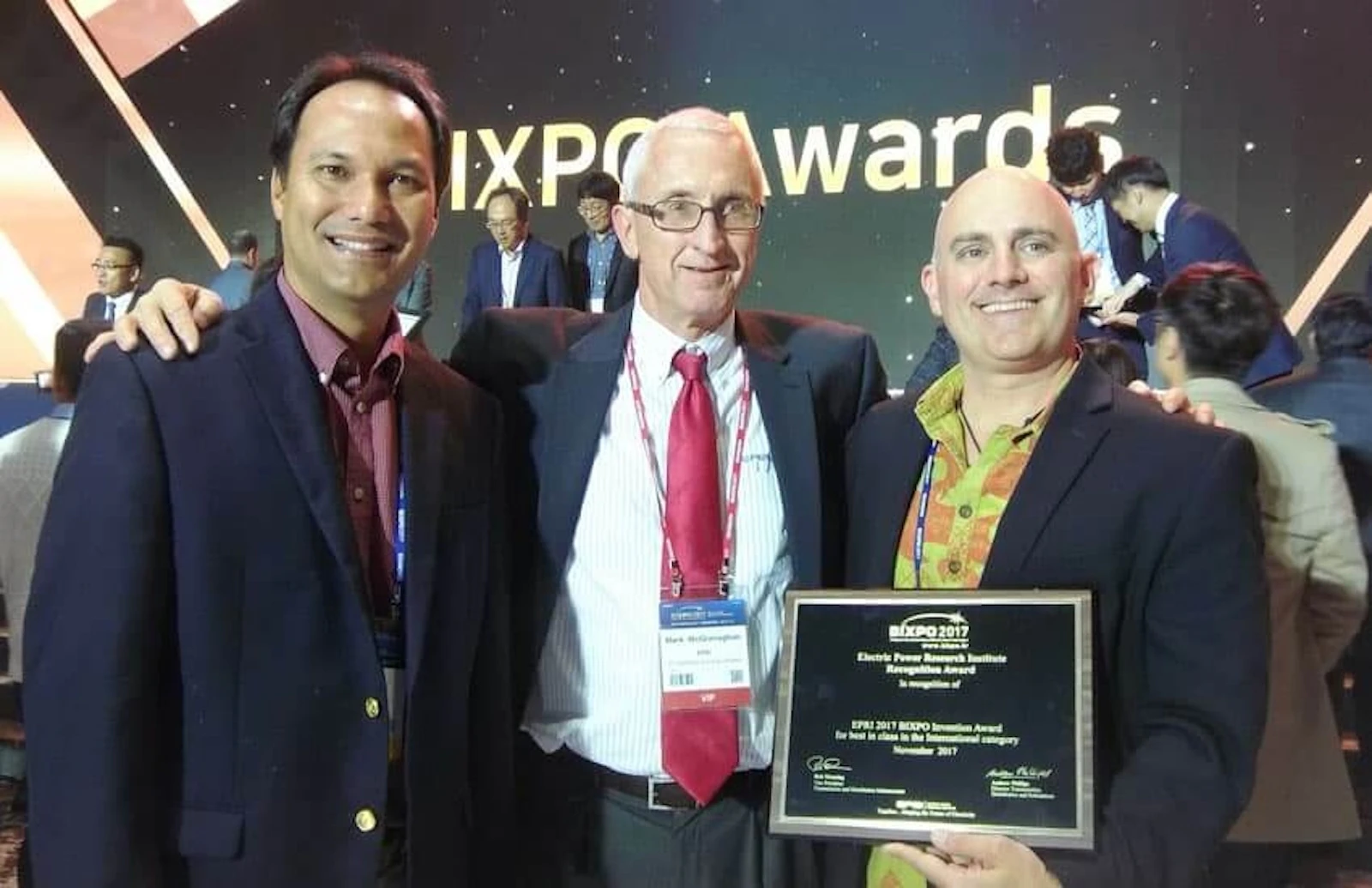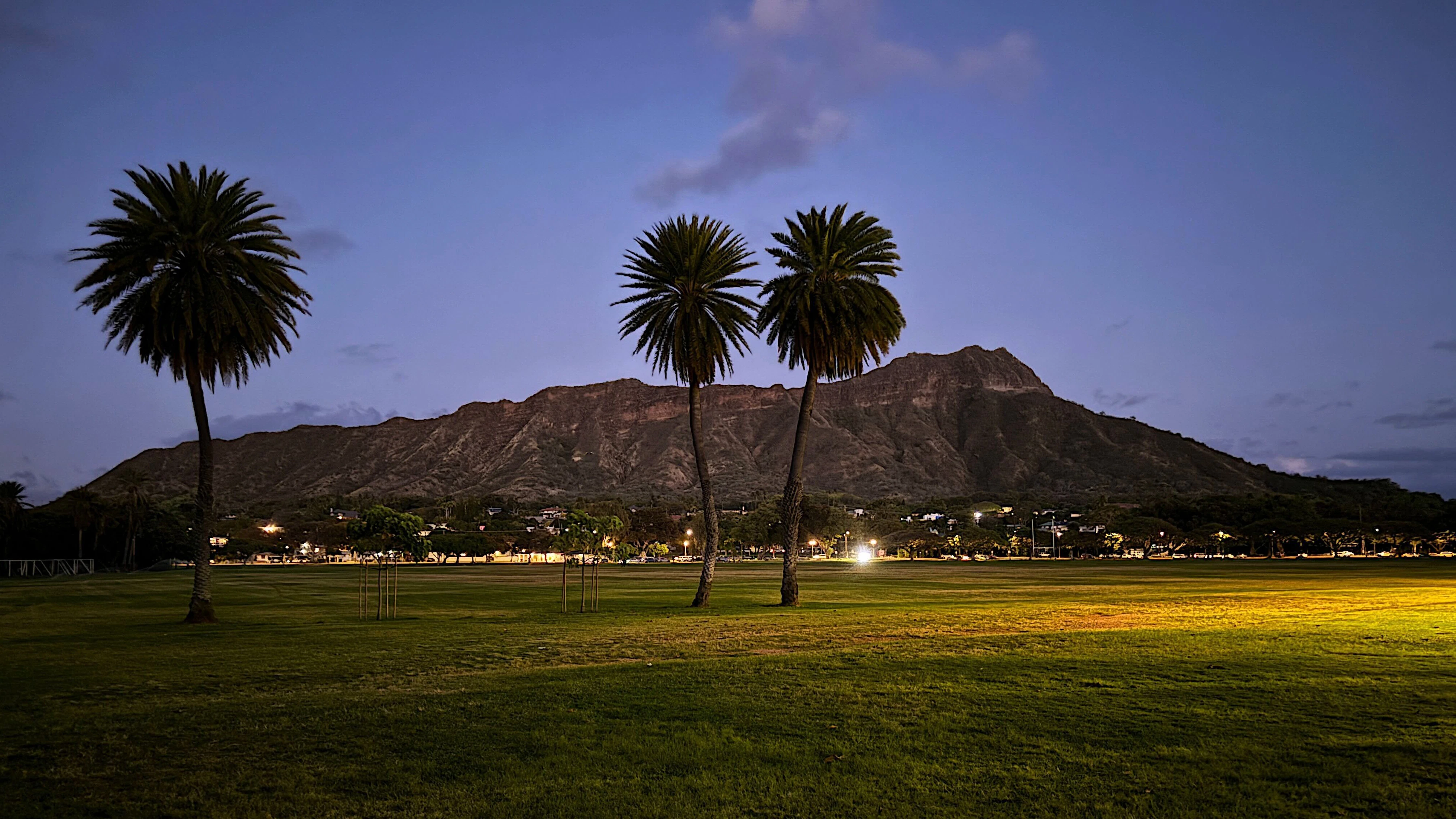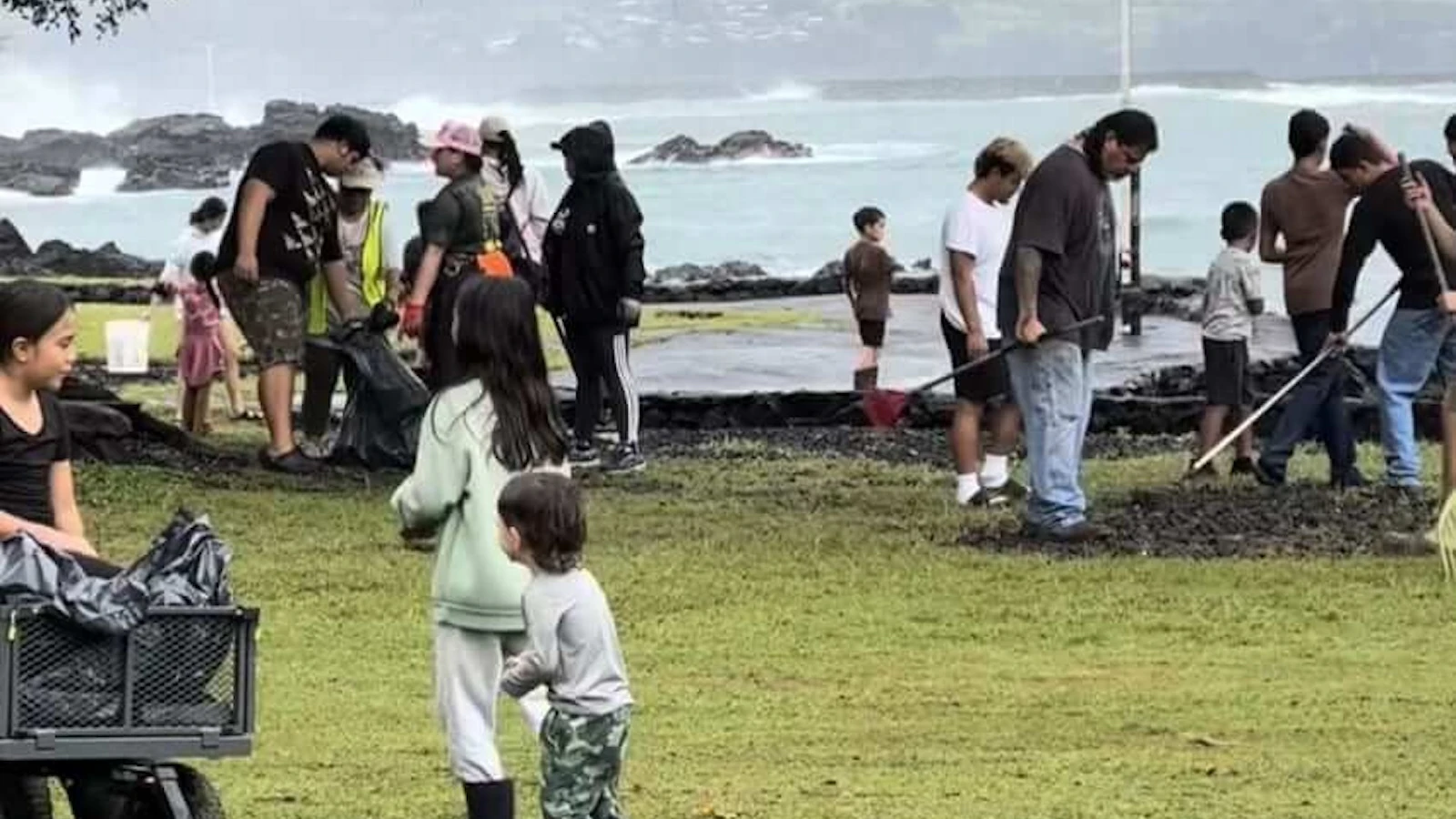When Hawaiʻi committed in 2014 to becoming 100% renewable by 2045, it signaled a new era of sustainability.
For Kanaka ʻŌiwi innovator Olin Lagon, then a member of the Hawaiʻi Clean Energy Initiative Steering Committee that pushed for the goal, it also revealed a deeper challenge: ensuring that the benefits of clean energy reached everyone, not just those who could afford it.
Lagon realized that underserved communities and renters would face major financial challenges.
“Upwards of 75% of Native Hawaiian families live under the ALICE poverty threshold, which is absolutely criminal. And when I’m talking about the underserved, I’m talking about our Hawaiian community,” said Lagon. ALICE stands for “Asset Limited, Income Constrained, Employed.”
Two years later, Lagon and his business partner, Forest Frizzell, founded Shifted Energy in his garage to enable widespread access to energy solutions. The company combines smart hardware and software to help utilities balance the grid using everyday devices like water heaters. Powered by advanced machine learning, the system automatically shifts energy use to lower-cost times and stabilizes circuits without users ever noticing a change.
The water heater was just the first of many devices Lagon and Frizzell realized they could manage and control.
“In Hawaiʻi, the water heater is the number one user of energy in most homes,” said Lagon, who explained that many underserved homeowners have cheaply made and inefficient electric resistance water heaters. Shifted Energy sought out to target lowering cost and ensuring quality products.
It took years of tinkering, testing and perfecting. Between pitching to investors and expanding the company, Shifted Energy remained focused on helping those who needed it most. They knocked on doors, talked story, identified issues and sought to solve them. This also included securing funds to get additional work done.
One Waimānalo homestead family had been spending more than a $1000 a month on electricity. Lagon and Frizzell were puzzled. The home had no major electrical appliances such as air conditioning. They traced the issue to a leaking water heater and then identified grant funds to replace the water heater for the family.
“Their bill the next month dropped to $100. There was a $900 swing – and it stayed at that level,” said Lagon.
They also came across homeowners who were sold a bill of goods by unethical companies with no follow-up services. In other cases, Shifted Energy upgraded homes with energy-efficient heat pump water heaters and foresaw other issues.
“They were installed outdoors and started to get damaged,” noted Lagon. “So Forest got some more philanthropy dollars, and we came back out and built enclosures for them, like we don’t have to do that, but we want them to have that thing for 20 years.”
Not only did they introduce their product to households, they also helped people in other ways.
In one house visit, Frizzell came across a kūpuna who could not afford to furnish his home. Lagon said he received a call from his co-founder who was determined to find a bed for him to sleep on that night. After calling friends, they were able to deliver a futon.
Lagon calls this “leaning in” to the work they do. “It’s not just about energy. It’s about people and community. And we do that over and over and over again,” he said.
Both founders practice traditional Native Hawaiian farming on weekends and volunteer with the state’s largest technology education nonprofit, Purple Maiʻa, which works in Native Hawaiian communities throughout Hawaiʻi.
Shifted Energy has grown to manage more devices, so they use energy when it is cheapest. Air conditioning systems, electric cars, heat pumps, solar, and batteries can ramp up when power is abundant and ease off when it is costly. The mission never changed. Serve the people most often overlooked.
The company has completed thousands of installations in underserved neighborhoods in Hawaiʻi, on the continent, and in Canada. They have even expanded pilot programs to Europe and Aotearoa (New Zealand).
“I don’t think there’s another company on this earth that is better than us and we’ll beat anyone in any RFP (request for proposal) head-to-head. That is our legacy of Indigenous innovation and here, like you know, we’re the smartest people in the world and not smart in the ʻwestern’ sense but smart in the community sense. We lean into the strength of diversity,” said Lagon.
Lagon’s pride in what they’ve built is well-founded. On Oct. 9, Shifted Energy announced its acquisition by San Francisco-based Resource Innovations (RI), a major move to advance grid-edge technology and bolster energy equity.
“Adding Shifted Energy’s capabilities to RI’s offerings enables us to deliver scalable, end-to-end DSM (demand-side management) and grid-edge solutions to more customer segments than ever before,” said Lauren Casentini, founder and CEO of RI.
Following the announcement, Frizzell said, “Tomorrow we get back to building solutions that are equitable, innovative, and rooted in the communities we come from.”
Shifted Energy is Lagon’s third social venture to grow from small Native Hawaiian nonprofit roots to national and international work. Two of his previous social ventures were acquired by larger firms.
“When Kanaka ʻŌiwi values guide entrepreneurship, solutions can scale here and then everywhere,” said Lagon. “Of course, this is not easy but when you are doing the right thing, how can you not be inspired to bust your ʻēlemu (butt) for the community?”
He continues to lean in – inventing and building to solve problems in new ways that honor community and create equity.
This article is reprinted with permission from Donalyn Dela Cruz, “Innovating for equity," OHA's Ka Wai Ola newspaper, November 2025, Vol. 42 No. 11. Read more at kawaiola.news.





